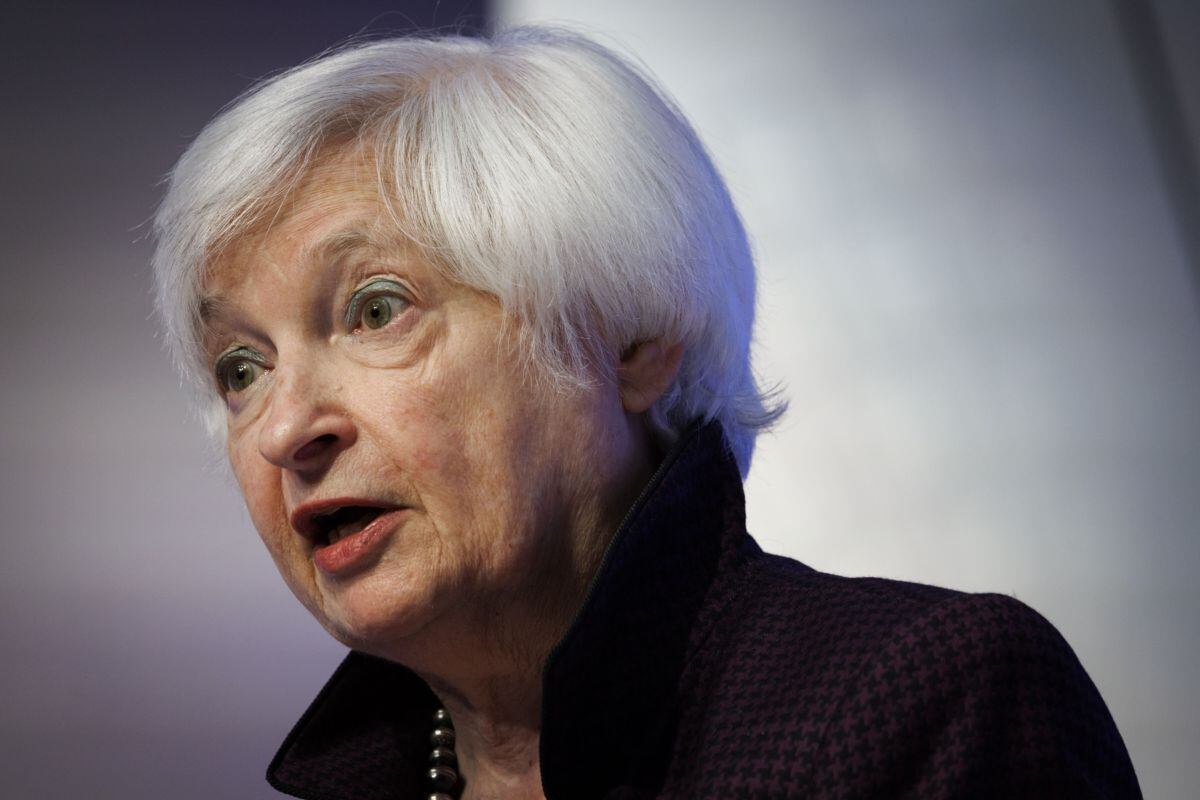
“We are going through an unusual and difficult period, but I don’t think we are in any way back to the 80s and 70s.″, he said in an interview, referring to a time of rising prices and wages.
Although central banks still have a long way to go to quell the worst bout of inflation in decades, with prices trending lower the debate now turns to what will happen when this fight is over.
The risk of being wrong is high, economically and politically. Yellen, along with Federal Reserve Chairman Jerome Powell and many members of the American economic class, incorrectly predicted in 2021 that the burst of inflation would be “transient”.
Yellen has since admitted she was wrong and has supported the Fed’s efforts to rein in prices with aggressive rate hikes, which risk pushing the US into recession.
Unlike in the 1970s and early 1980s, Yellen said the current episode of high inflation has not triggered a wage-price spiral, a dynamic in which workers demand increases in anticipation of higher prices, leading to companies to raise prices. Economists look for signs of this type of spiral in inflation expectations.
“Expectations have been well anchored, and I believe they remain so”, he said in the interview, conducted on Friday in Johannesburg, on the last leg of a visit to three African countries. “So we’re not seeing a spiral of prices and wages. That is not happening.”
The annual rise in the consumer price index peaked at 9.1% in June but has slowed to 6.5% since last month in response to Federal Reserve rate hikes as well as easing of tensions in the supply chain and the fall in oil prices.
Former Treasury Secretary Lawrence Summers and Kenneth Rogoff, former chief economist at the International Monetary Fund, are among those who have warned that the world economy is entering a period of geopolitical tensions and debt crises that risk making debt crises more frequent. episodes of inflation and high interest rates.
Another former IMF chief economist, Olivier Blanchard, is more in line with Yellen, arguing that current inflation will not last and that central banks, including the Federal Reserve, will face a return to an environment where interest rates are uncomfortably close to zero. He has proposed that central banks raise their inflation targets from 2% to 3% to counter this.
Yellen spent a quarter century at the Fed, including four years as chair, from 2014 to 2018. For most of that period, inflation was historically low thanks to demographics, technology, and globalization.
The personal consumption expenditures (PCE) ratio, the Fed’s preferred inflation gauge, rose an annual average of 1.9%, below the Fed’s current target, between 1992 and 2019. Many policymakers have been concerned that would actually be too low, forcing interest rates near zero and robbing the central bank of the ability to fight recessions with sharp rate cuts.
That streak was interrupted by COVID-19, marked by supply chain problems and government aid in the United States that skyrocketed demand, and then Russia’s invasion of Ukraine early last year sparked a rebound in energy and food prices. These upticks since the mid-1980s have tended not to last, he said.
“The pandemic caused such unusual disruptions in the economy,” he explained. “There were many problems in the supply chain. We hit the wall in a bunch of different sectors and prices skyrocketed.”
Yellen did not say how long she thought it would take for inflation to return to its target, nor did she comment on how the Federal Reserve should react in that case.
Source: Gestion
Ricardo is a renowned author and journalist, known for his exceptional writing on top-news stories. He currently works as a writer at the 247 News Agency, where he is known for his ability to deliver breaking news and insightful analysis on the most pressing issues of the day.












